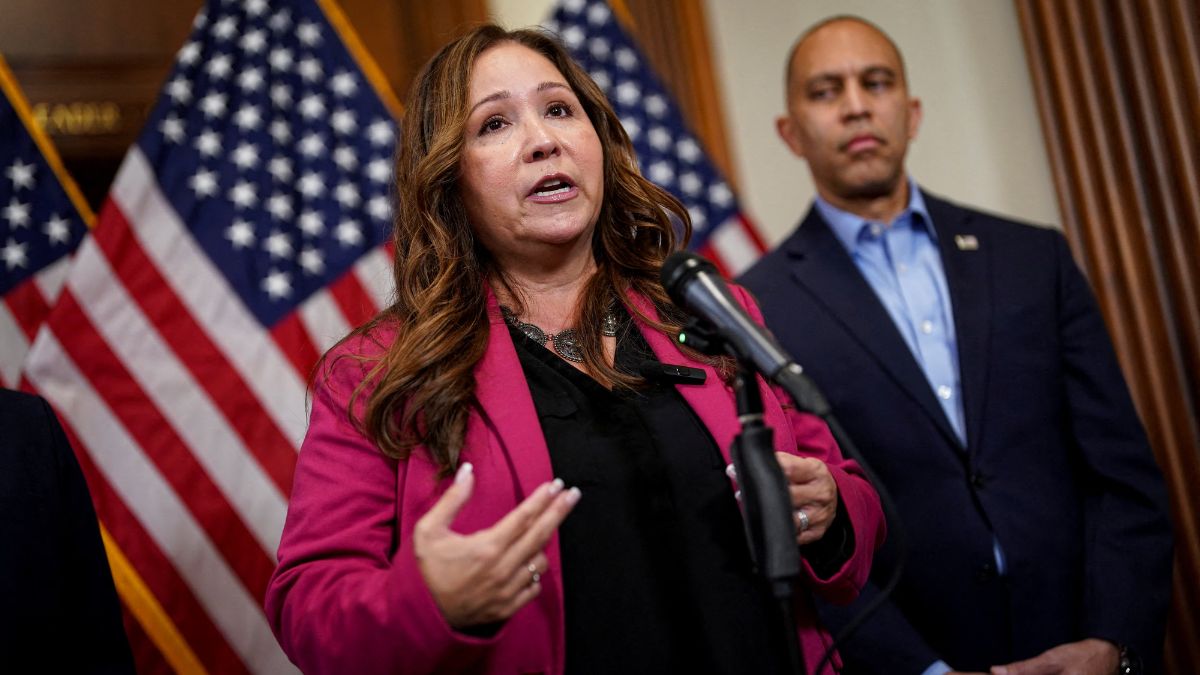In Tucson, Arizona, immigration attorney Rachel Wilson has for years counted on the assistance of her local congressional office to navigate complex federal procedures for her clients—helping with issues like visas, green cards and work authorization.
That support, which she once received from the office of longtime Representative Raúl Grijalva, became uncertain after his death in March. When his daughter, Adelita Grijalva, won a special election on September 23 to succeed him, Wilson anticipated a smooth hand-over of services.
Instead, over a month later, the local district office in Tucson is closed and phone lines go unanswered. The reason: House Speaker Mike Johnson, a Republican, has refused to administer the oath of office to Adelita Grijalva (a Democrat) while the federal government remains shut down. As a result, residents of Arizona’s sprawling 7th Congressional District are effectively without a voice in Congress—or assistance locally.
The Impact on Constituent Services
Wilson voiced her frustration, saying:
“Here I am paying taxes to the federal government and … not only is it closed but I don’t have a representative either.”
Adelita Grijalva spent much of the week in Washington, D.C., yet was unable to access government email or federal systems. Her office on Capitol Hill remains mostly inactive, with many desks empty. Without security clearance, she cannot even bring simple items—like a hammer—into the Capitol, because they are considered weapons in the restricted area. She likened her position to being a “tourist with an office in DC.”
On Tuesday, Arizona Attorney General Kris Mayes (Democrat) filed a lawsuit demanding Johnson seat Grijalva. However, Johnson has held firm: he says he will not swear in new members until the Senate passes a funding bill to reopen the government. He claims he is following precedent.
In the meantime, frustration is building across the district. At a rally in Tucson against former President Donald Trump, the crowd repeatedly chanted “Swear her in!” Retired school administrator Ross Sheard and his wife Susie—both residents and early voters for Grijalva—expressed their disappointment. “It’s a damn shame,” Sheard said.
A Vast District with Significant Needs
Arizona’s 7th Congressional District covers nearly the entire U.S.–Mexico border in the state—territory that has been central to Trump-era immigration policy and border-wall rhetoric.
The district extends into parts of the Phoenix suburbs, Tucson and Yuma, includes desert roads, a 1.9 million-acre Air Force range, numerous ports of entry, a veterans’ hospital, Native American reservations and the University of Arizona. One in six residents are seniors receiving Social Security benefits, and nearly half of residents are enrolled in Medicaid.
Raúl Grijalva represented the district for more than 20 years. Shortly after his death, his daughter Adelita announced her candidacy to succeed him. Running on her father’s legacy, she won the Democratic primary, then defeated Republican Daniel Butierez in the special election with about 70% of the vote.
Both Grijalva and Butierez supported a bipartisan effort in the House to release records related to convicted financier Jeffrey Epstein, which would require at least 218 members to sign a discharge petition. Grijalva argued that the delay in her swearing-in is an attempt to block that vote. In her supporters’ view, this is more than procedural—it’s political.
Johnson denies the claim, saying his decision is based on precedent. Critics point out that earlier this year, he seated a pair of Florida Republicans within 24 hours of their special election victories, even though the House was not in regular session. That move increased his narrow majority, casting doubt on the consistency of his stated reasoning.
Butierez, preparing to challenge Grijalva again next November, criticized the situation. He said Grijalva’s new role and its temporary limitations are “her problem,” not a district emergency—especially compared to what he viewed as past issues, such as her father missing over 500 votes while battling cancer. “Why didn’t anybody care then?” he asked.
Local Reactions and Divided Opinions
Some Republicans in the district aren’t upset about going without representation for now. For example, Tucson machine-shop owner Jerry Ward said he doesn’t expect much voice once Grijalva is seated either—and seemed willing to wait for the process to run its course: “If she’s patient, it will happen.”
A union worker named Steve, out fishing in Sahuarita, argued that the elder Grijalva ignored local hunters and outdoorsmen. He said his father “was a joke.”
That contrasts sharply with Rachel Wilson’s view. She recalled how Raúl Grijalva’s office had helped her clients by intervening when green-card processing stalled or citizenship applications were delayed. His office won a 2018 award from the Congressional Management Foundation for outstanding constituent service—“that’s the level of service we’re accustomed to,” she said.
Even after his death, his office handled some requests until August, when they stopped taking new cases. After Adelita’s election, the office shut entirely. A posted note at the Tucson location (in English and Spanish) now instructs visitors to call one of Arizona’s two U.S. Senators instead of using the district office.
Tucson resident Kent Barter, a former high-school government teacher, said he believed electing Grijalva would restore proper representation—but he’s still waiting. “Representation is guaranteed by the Constitution, and party politics should be below that,” Barter said. “If you’re voted in, you should have a seat.”
Residents of Arizona’s 7th Congressional District find themselves in a unique and troubling situation: they have elected a representative, yet the seat remains unsworn and their local office remains closed due to a federal government shutdown and a dispute over when the oath will be administered.
While the delay is framed as procedural, critics believe it carries political weight—especially given how the district is central to immigration, veteran and border issues. Constituents who expected a seamless transition are now left seeking help and representation that isn’t yet available.
Until the impasse is resolved and the government reopens, the people of this vast and diverse district will continue navigating federal systems without the full support they once relied on.



